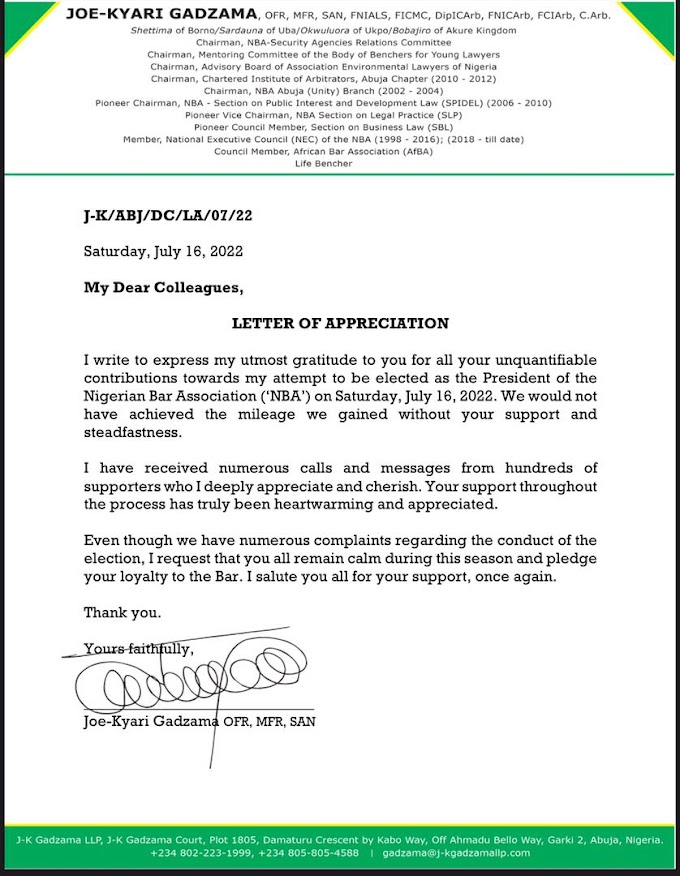IKENNE vs. THE STATE(2018)LPELR-44695(SC)
ISSUE: INCONSISTENCY RULE: The legal effect where the previous evidence of a witness is inconsistent with his present testimony
PRINCIPLE:
"Now, this appeal is about the inconsistency rule and how it impacts on the burden of proof in criminal proceedings. Our jurisprudence is replete with decisions on the principle. The inconsistency rule, in relation to the testimony of a witness, renders incredible and unreliable the oral evidence of a witness as well as his earlier statement the oral evidence materially contradicts. Thus in the instant case, if as asserted by the appellant, the oral evidence of PW2 and PW3 indeed materially contradict their extra judicial statements, their statements as well as their contradictory oral evidence, must necessarily be discountenanced. Being incredible and unreliable, the statements and the oral evidence will be incapable of sustaining the concurrent conviction of the appellant bythe two lower Courts. See Tunde Asimi V. The State (2016)LPELR- 40436 (SC); Friday Smart V. State (2016)LPELR-40827 (SC) and Akinlolu V. State (2015) LPELR-25985." Per MUHAMMAD, JSC.(Pp.9-10,Paras.B-A).
ISSUE: INCONSISTENCY RULE: When is the inconsistency rule applicable
PRINCIPLE:
"It is pertinent to stress that for the inconsistency rule to apply, PW2 and PW3, must be seen to have failed, on being confronted with their earlier contradictory statements in the course of their oral testimony, to explain away the inconsistencies which, again, must be fundamental. lt follows, therefore, that the rule will neither apply if they were not confronted with the earlier contradictory statements in the course of their oral testimony or, having been confronted, they had given sufficient reasons or explanations for the inconsistencies in the earlier statements and subsequent oral evidence. See Jizurumba V. State (1976) NSCC (Vol. 10) 156; Egboghonone V. State (1993) 9 SCNJ 1." Per MUHAMMAD, JSC.(P.10,Paras.A-D).
AYINDE vs. THE STATE(2018)LPEL
R-44761(SC)
ISSUE: INCONSISTENCY RULE: How the inconsistency rule operates
PRINCIPLE:
"...I must add that learned appellant's counsel misconceived the inconsistency
rule as it relates to an accused person. Yes, the rule is that whenever a witness's
oral testimony at trial contradicts his earlier extra judicial statement the Court
treats the two incredible and unreliable. The rule only applies in civil matters and
is, in criminal cases, limited to witnesses other than the accused person(s). The
rule while evolved to resolve conflict between the later evidence and previous
statement of witnesses, it is not meant to resolve inconsistency between the oral
evidence of an accused and his extra judicial statement. The trial Court,
therefore, is not barred, on the basis of the rule, from relying on any or both, the
extra judicial statement and oral evidence of an accused person, once it gives
reasons for the preference and reliance. See Stephen Emoga V. State (1997)
LPELR-1134 (SC); Stanley Idigun Egboghonome V. The State (1993) 7 NWLR (Pt. 306) 383 and Akinlolu V. State (2015) LPELR-25986 (SC). Furthermore, for the rule to apply, the inconsistency between the extra judicial statement of the witness and his oral evidence must be vital and fundamental. See Uwagboe V. The State (2008) 12 NWLR (Pt. 1102) 621; Basil V. The State (2008) 4 SCNJ 250 and Okiemute V. State (2016) LPELR-40639 (SC)." Per MUHAMMAD, JSC.(Pp.49-50,Paras.A-B).







0 Comments